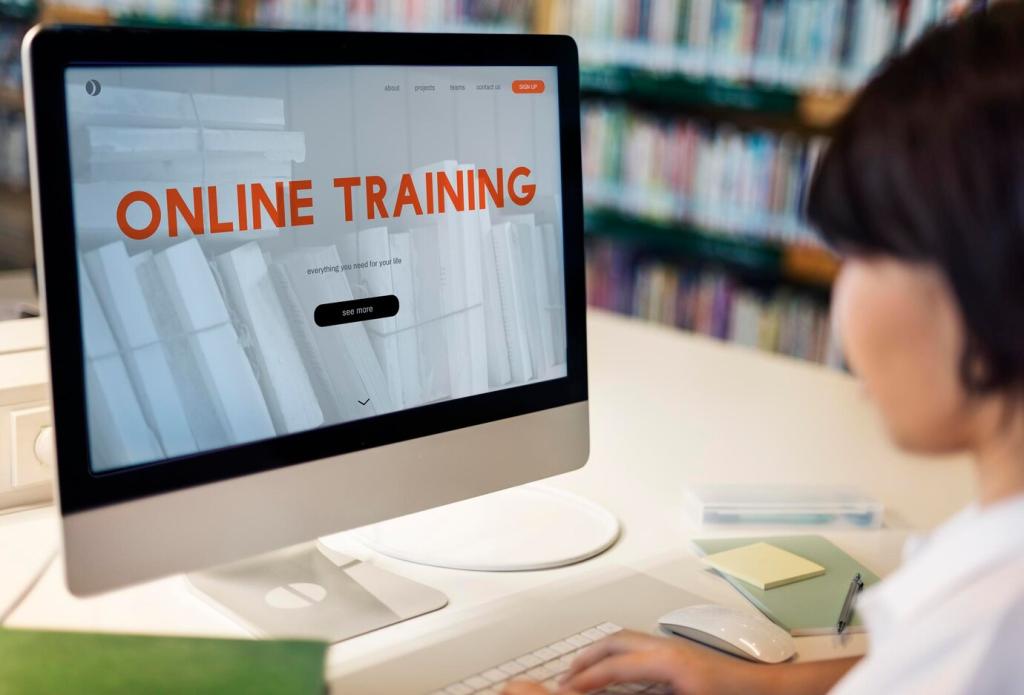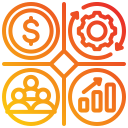
Comparing Online IT Education Platforms: Choose Your Best Path
Chosen theme: Comparing Online IT Education Platforms. Explore how different platforms stack up on curriculum, mentorship, hands‑on labs, and career outcomes—so you can learn smarter, not harder. Share your priorities and subscribe for future comparisons.
What Truly Defines a Great Online IT Platform
Look for platforms that clearly articulate skill outcomes, with measurable milestones, practical projects, and assessments. When outcomes are explicit, you can track progress, refine goals, and avoid drifting through endless content without real mastery. Tell us your must‑have outcomes.

From Foundations to Advanced Specializations
Effective platforms scaffold fundamentals—algorithms, networking, security, databases—before branching into cloud, DevOps, data engineering, or AI. This progression prevents knowledge gaps and prepares you to integrate new technologies confidently under real‑world constraints and timelines.
Up‑to‑Date Content and Versioning Discipline
Technology moves fast; content must, too. Check update cadences, version labels, and deprecation notices. Clear versioning ensures you learn the right Kubernetes flags, Python releases, or cloud services, avoiding confusion during interviews and production work later.
Capstones That Mirror Real Roles
Seek capstone projects that simulate job tasks: designing APIs, hardening infrastructure, implementing CI/CD, or building data pipelines. Authentic deliverables create portfolio artifacts recruiters understand, boosting confidence and signaling genuine, job‑ready competence.
Live Q&A and office hours reduce blockers that derail momentum. When an expert unpacks your confusion in minutes, you conserve energy for deeper practice. Ask whether sessions are recorded, searchable, and tied to course milestones for maximum impact.
Instructors, Mentors, and Feedback Loops
Constructive reviews illuminate blind spots you cannot see alone: naming, complexity, tests, security, and maintainability. Look for platforms offering rubric‑based feedback with examples, so you internalize principles and improve steadily across projects over time.
Instructors, Mentors, and Feedback Loops
Hands‑On Practice: Labs, Sandboxes, and Projects
Platforms that spin up disposable environments let you experiment safely without local configuration headaches. Instant terminals, seeded datasets, and preinstalled tools help you focus on concepts, not setup, enabling more repetitions and deeper, faster learning sessions.
Hands‑On Practice: Labs, Sandboxes, and Projects
Prefer platforms where you push code to real repositories, file issues, write tests, and open pull requests. Practicing professional workflows builds fluency with collaboration, version control, and documentation—habits that matter in interviews and day‑to‑day teamwork.
Hands‑On Practice: Labs, Sandboxes, and Projects
Scenario‑based tasks—troubleshooting failing builds, optimizing queries, or hardening endpoints—mirror on‑call reality. These assessments reveal gaps earlier, guiding your practice plan. Tell us which simulation types you want to see compared in more depth next.
Certifications, Portfolios, and Hiring Signals
Vendor certs can unlock interviews for roles like cloud engineering or security. Platform badges motivate progress, but weigh their external recognition. The strongest programs integrate both, aligning learning paths to exams and real deliverables simultaneously for impact.


Certifications, Portfolios, and Hiring Signals
Curate three to five projects with clear READMEs, diagrams, tests, and deployable demos. Explain trade‑offs, performance, and security considerations. Platforms that teach communication alongside code help your portfolio tell a persuasive, professional story to hiring teams.
Community, Support, and Motivation Mechanics
Active forums and moderated chat reduce isolation and accelerate troubleshooting. Study groups create accountability and shared wins. Look for searchable threads, code snippets, and etiquette guidelines that keep discussions helpful, respectful, and discoverable over time.
Motivation systems should encourage consistency without guilt. Calibrated streaks, milestone celebrations, and intelligent reminders help you return after breaks. Share whether streaks motivate you or create pressure, and which alternatives you find kinder and effective.
Check documented response times, escalation paths, and coverage hours. Reliable support reduces downtime and frustration when environments break or content confuses. Comment with your best support experience and what made it memorable, fair, and genuinely helpful.

Inclusive Design and Accessibility Standards
Prefer platforms that honor semantic structure, keyboard navigation, captions, transcripts, and alt text. Accessibility is not optional—it expands reach and reduces cognitive load for all learners, improving comprehension, retention, and genuine long‑term confidence.

Mobile Learning and Offline Continuity
Robust mobile apps and offline modes let you review notes, quizzes, and code snippets between commitments. Micro‑learning keeps momentum alive. Tell us where you learn—train rides, lunch breaks, or late nights—and we’ll tailor upcoming comparisons accordingly.

Data Privacy, Reliability, and Trust
Evaluate uptime, backup policies, and privacy practices. Trustworthy platforms communicate incidents transparently and respect your data. Reliability matters when deadlines loom; a stable, predictable environment supports deep focus and reduces anxiety during critical study windows.
